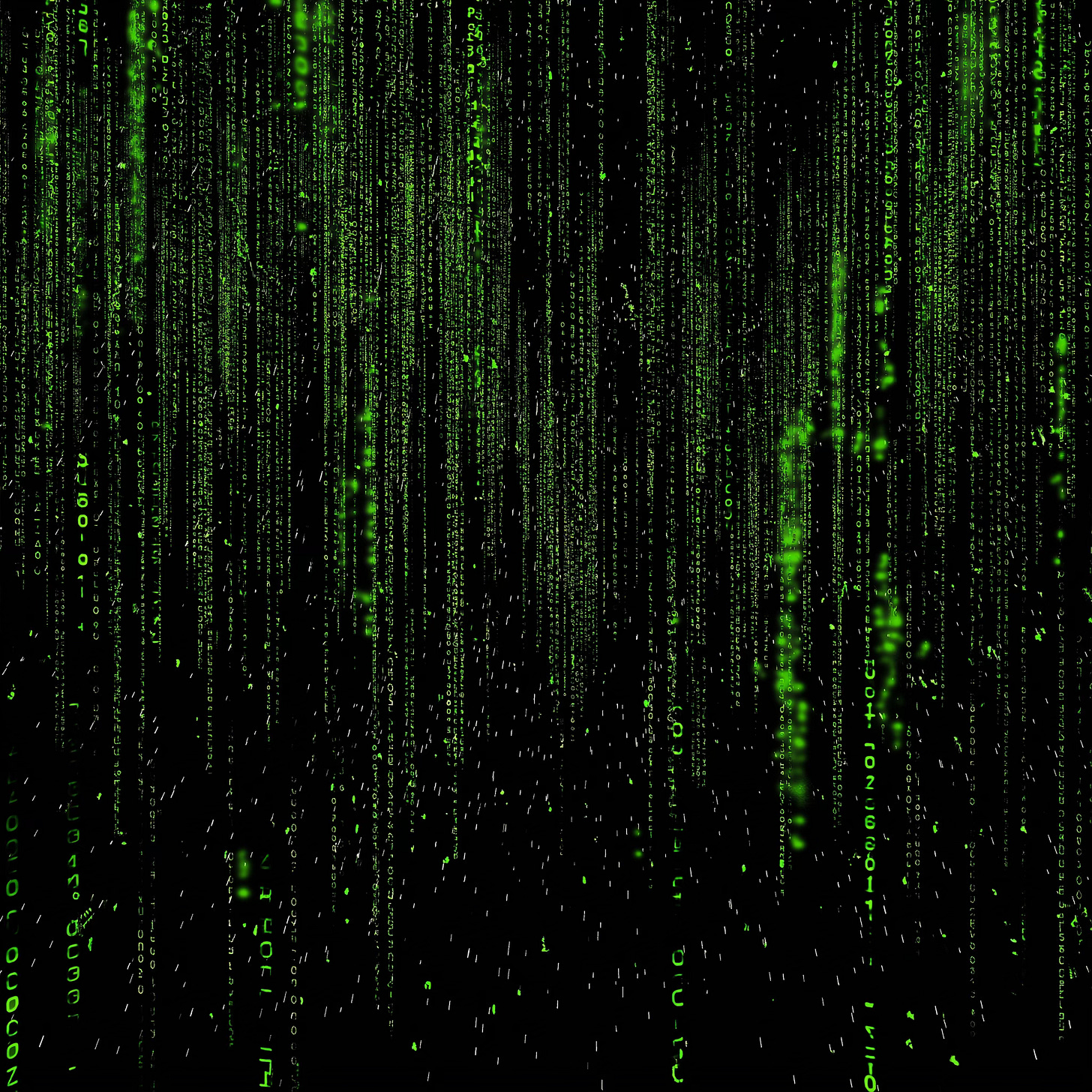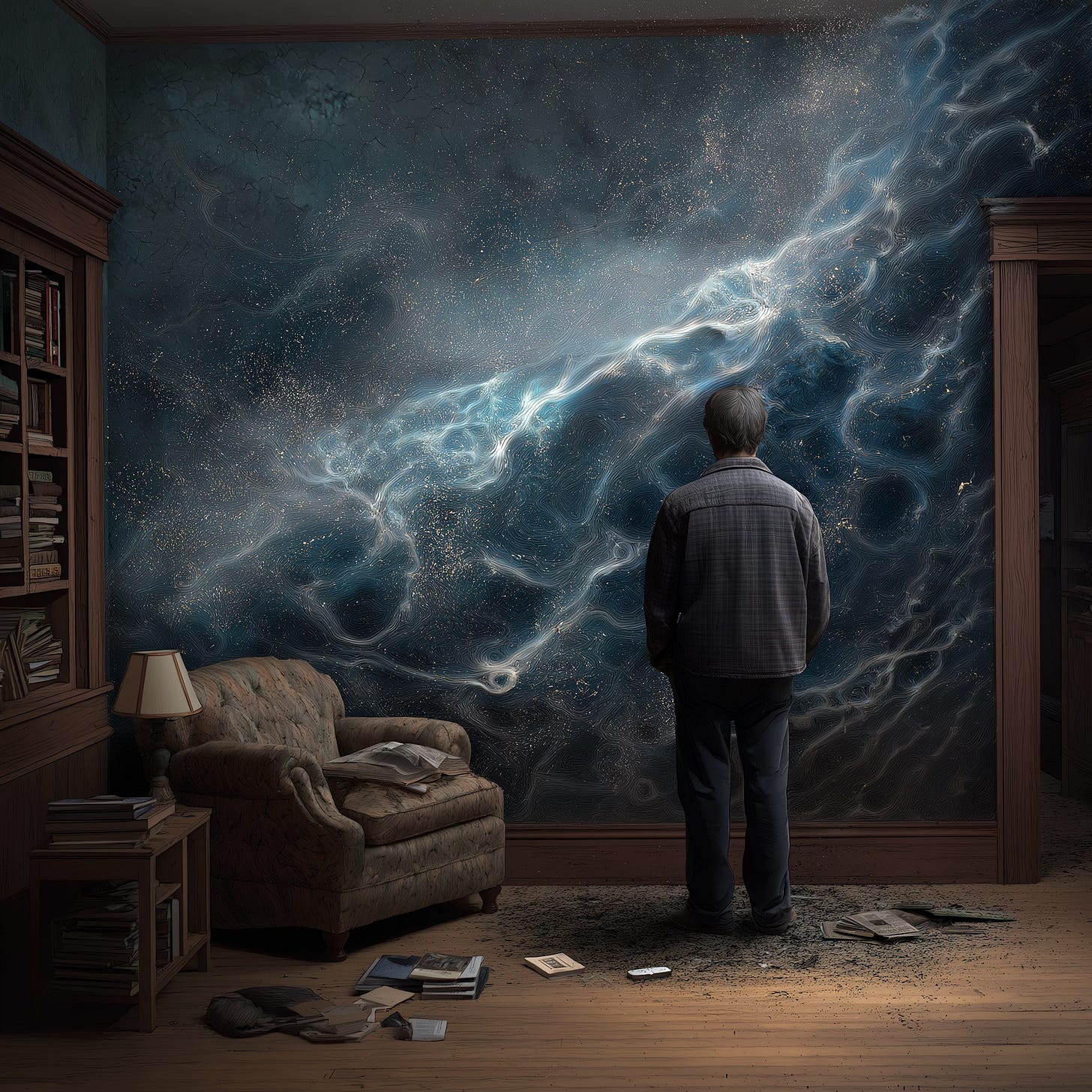Days When the Universe Breaks
Bad Luck, Human Brains, and Mercury’s Terrible Timing
Some days you spill coffee on your shirt. Other days the coffee spills, your tire hisses its last breath, the Uber driver wants to discuss samurai sword technique, and someone hands you a business card that may or may not belong to them while discussing racial harmony at midnight. We’ve all been there — the kind of day where even your backup plans have backup problems. But what is that exactly? A mere streak of chance? A misfiring of the cosmos? Or something deeper about the way we experience time and trouble?
Let’s walk through the strange phenomenon of when everything — even the small stuff — turns to absolute crap, and why you might not be crazy for feeling like the universe is a bit… out of sync.
Why Bad Days Come in Clumps (According to Math and Your Brain)
It turns out that if your life feels like it’s being directed by a mischievous toddler with a cosmic remote control, you might just be experiencing… statistics.
No, seriously. Randomness isn’t smooth. It’s lumpy. Much like oatmeal or bad airline service. In fact, randomness often appears in streaks. The technical term is “clustering,” and it’s the reason a perfectly fair coin can land on heads ten times in a row without violating the laws of nature. You didn’t do anything wrong. You just live in a world where chaos sometimes chooses to be efficient.
But while math shrugs and calls this Poisson distribution, your brain is busy constructing a story — one where you’re cursed, the stars are mad at you, or Mercury is spinning backward while laughing at your travel itinerary. (AKA The Gambler’s Fallacy) And that, dear reader, is where our pattern-hungry minds come in. We’re walking story-generators. We connect dots that aren’t even on the same page. When two bad things happen, we brace for the third. By the time it arrives (and it always does — because life), we feel vindicated. See? Bad things really do come in threes!
Of course, they don’t. Not reliably. But once your brain starts down that rabbit hole, it becomes highly selective. Confirmation bias kicks in — we notice every stubbed toe and missed email, but not the green lights or the perfectly decent lunch sandwich. So while reality is dishing out a mix of ups and downs, our minds start building a highlight reel of disaster. And if we’re honest, we sort of love the drama of it. There’s comfort in the idea that a pattern — even a painful one — is in motion.
Mercury Retrograde and Other Convenient Scapegoats
For those who prefer a bit more poetry (and a little less probability), there’s always astrology. Or vibes. Or energy fields. Or Mercury retrograde, the universal “blame it on the stars” season that occurs multiple times a year — just often enough to always be blamed and just mysterious enough to never require proof.
When Mercury is in retrograde, it allegedly messes with communication, technology, and travel. In other words, everything important. Your texts fail. Your flights get delayed. Your GPS reroutes you into a lake. If you’re having a rough go and it happens to be Mercury retrograde, congratulations — you’ve got yourself a cosmic alibi.
Mercury retrograde is, technically speaking, an astrological phenomenon where the planet Mercury appears to move backward in the sky from Earth’s perspective.1 This illusion — caused by the difference in orbital speed between Earth and Mercury — is, quite fittingly, not actually happening. It’s the universe’s version of a magic trick: nothing’s moving backwards, but it looks just wrong enough to make people panic. And somehow, that’s the most poetic metaphor for these kinds of days: a cosmic misreading of reality that still manages to screw everything up.
But even if you’re a card-carrying skeptic, there’s something charming about these explanations. They humanize our frustration. They give it shape. Rather than think “the universe is random and uncaring,” we prefer “the universe is mad at me because Mercury is doing donuts around the sun.” It’s less lonely. It feels personal — like the stars noticed us.
Then there’s the more modern, secular way to say the same thing: “I’m just out of sync.” A phrase that lands somewhere between Buddhist detachment and Wi-Fi troubleshooting. You’re not sure what exactly is wrong — the chakras? your to-do list? a glitch in the matrix? — but something is definitely off. It’s the emotional equivalent of static on the radio. You can’t always explain it, but you can feel it.
There’s also a delightful human irony at play here: We don’t believe in astrology… until everything goes wrong in a 12-hour window. Then suddenly we’re checking horoscopes, sageing the kitchen, and blaming Saturn for the stain on our white shirt. It’s not hypocrisy. It’s survival.
So What Do We Do When the Universe Turns to Static?
Here’s the truth wrapped in a soft blanket of humor: There’s no master code to crack. No hidden karma algorithm you failed. Sometimes, the bad days just stack up. Randomness is rude like that.
But that doesn’t mean we’re powerless. In fact, just knowing how the mind works — how it clusters, remembers, and exaggerates — gives us a tiny bit of leverage. You can start to see the bad day as a story, not a sentence. And stories, thankfully, have arcs. They move. They end. Even Shakespeare knew that when sorrows come, they come not single spies, but in battalions — but eventually, the battalion goes home.
There’s also power in naming the feeling without giving it too much authority. Call it a glitch. Call it Mercury. Call it your “data packet of doom.” But also realize that the streak will break. It always does. Even if that break arrives quietly — in a good night’s sleep, a parking spot that appears like magic, or just a moment where nothing goes particularly wrong.
So when you find yourself caught in one of those surreal stretches — the kind where the Uber smells like onions, the hotel doesn’t have food, and your son is texting you about a potentially dead roommate at 2 a.m. — you might just be living through one of life’s unfortunate jazz solos. Improvised. Dissonant. Unexpected. And utterly human.
Ride it out. Laugh if you can. Write it down. Because when the chaos settles — and it will — you’ll have a story that reminds you: even when the universe gets weird, you’re still here. Still dancing. Still watching the sword documentary in the back of a minivan with a man named Larry.
So yes — Mercury “retrograde” is based on an optical illusion, and yet somehow we’ve turned that illusion into a real scapegoat for everything from crashed emails to relationship meltdowns. In a twist only the cosmos could appreciate, we’ve named an actual psychological phenomenon after something that isn’t happening — and yet still feels accurate. If that doesn’t summarize human behavior in a sentence, what does?







